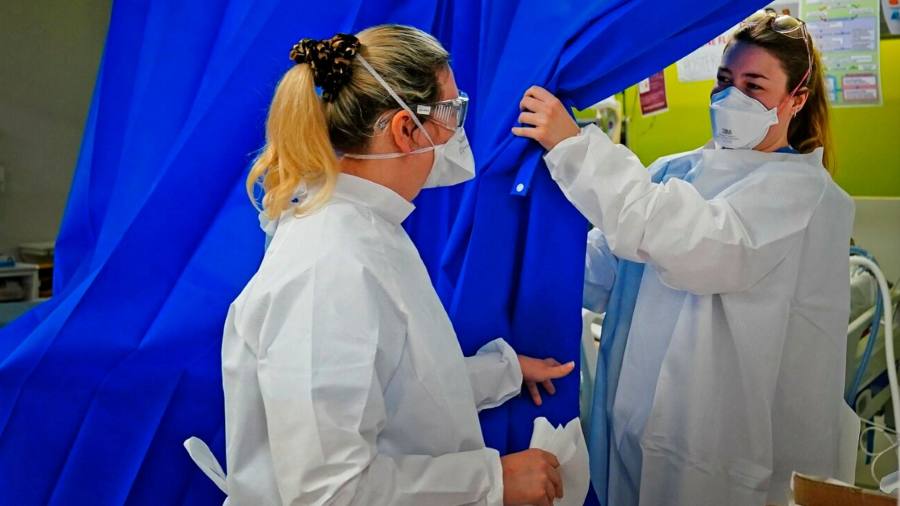NHS England has announced plans to boost its capacity this winter as the service, already struggling with a significant patient backlog and record delays in A&E departments, prepares for demand to increase.
Health chiefs on Friday committed to creating the equivalent of 7,000 more beds through a mixture of new hospital beds, efforts to improve patient flow and “virtual wards”, whereby people are treated at home with NHS equipment or assistance.
The health service said it would also recruit more call handlers nationwide to bring numbers working in 999 call centres and the non-emergency 111 service to 2,500 and 4,800 respectively.
Professor Stephen Powis, NHS national medical director, said: “Staff are already under pressure with continued high demand for our services — with figures showing the busiest summer ever for NHS emergency departments.
“Ahead of the winter, we want to make sure we are doing everything we possibly can to free up capacity so that staff can ensure patients get the care they need — this includes timely discharge, working with social care, and better support in the community with the expansion of virtual wards.”
The NHS has for many years contended with a winter crisis, a period when its resources cannot meet increased demand from patients suffering from diseases such as flu. Powis added that this winter would be the first where waves of Covid-19 and flu were likely to coincide.
Since the start of the pandemic, the health service has struggled even in the summer, when it has historically been less busy. In July, the number of people waiting more than 12 hours in A&E departments rose 33 per cent month on month to a level not seen since records began in 2010, according to NHS England.
The plan also includes £10mn for mental health services, which face record demand.
NHS England said it would work more closely with social care providers to ensure patients leave hospital promptly when they are medically ready to be discharged. In July, only 40 per cent were able to leave hospital when they were ready.
Danny Mortimer, deputy chief executive of the NHS Confederation, which represents organisations employing 1.4mn people across the health sector, said the biggest risk to NHS England’s plan was staff availability, given there are 105,000 vacancies in the service.
Saffron Cordery, interim chief executive of NHS Providers, which represents hospital, mental health, community and ambulance services in England, said they must have the workforce and funding in place to deliver the plan now and for the longer term.
“While the steps outlined today are welcome, these are a sticking plaster for the faultlines which the NHS has endured for too long and will not be enough to keep trust leaders’ worries about this winter at bay,” she added.
Steve Barclay, health and social care secretary, said he had launched a task force to drive up recruitment of international staff, while recruiting and retaining doctors and nurses.





















Discussion about this post